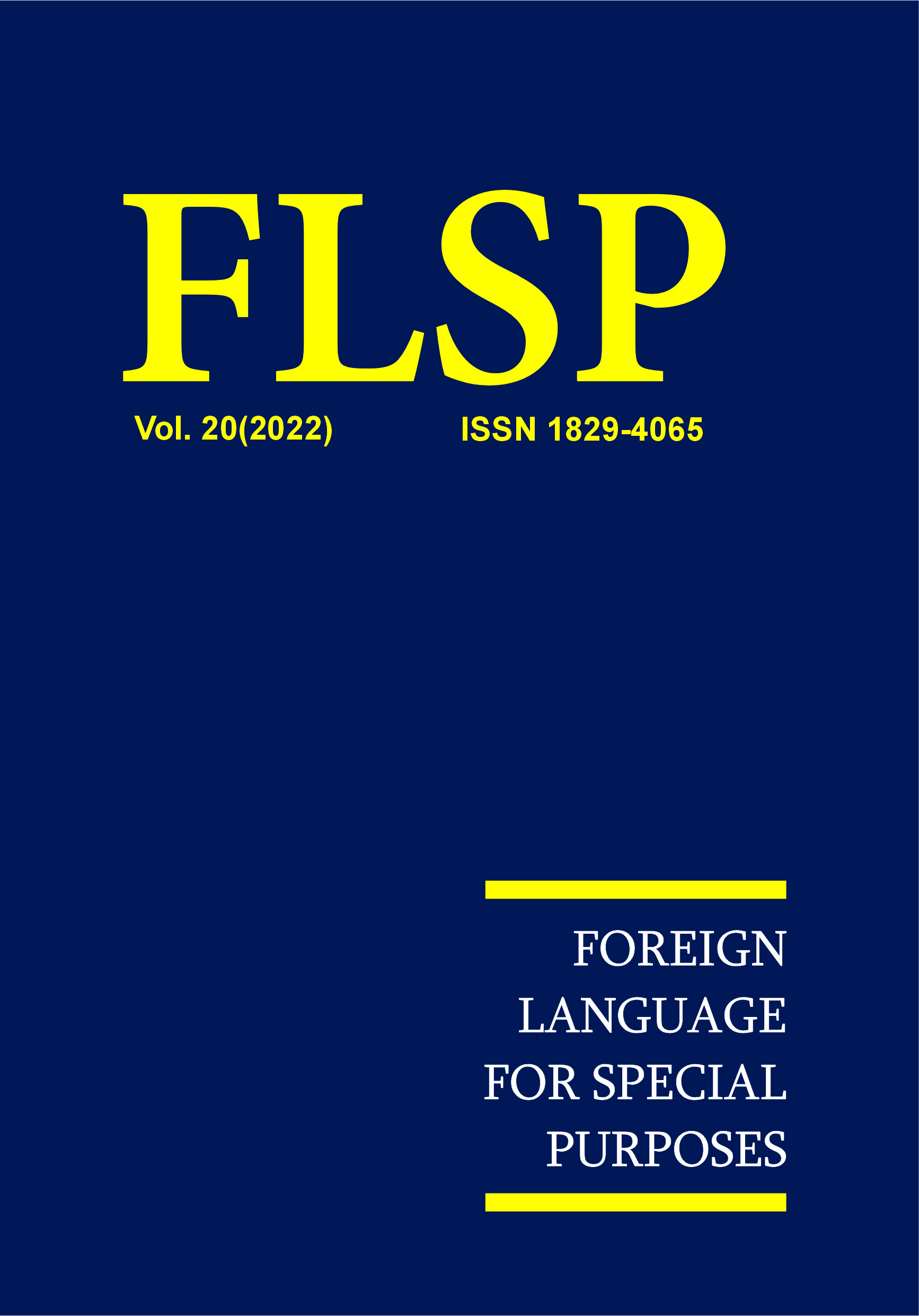THE ROLE OF THE TEACHER IN OVERCOMING LANGUAGE ANXIETY
DOI:
https://doi.org/10.46991/flsp.v20i1-2.8928Keywords:
foreign language anxiety, anxiety, unwillingness, motivation, lack of knowledge, strategyAbstract
Foreign language anxiety is a common phenomenon in teaching any language. Teachers do not always identify anxious students, and often attribute their unwillingness to participate in speaking and writing tasks to such factors as lack of motivation, low performance and at the same time low-level knowledge of grammar and vocabulary.
This article aims to provide teachers with methods and strategies for diminishing foreign language anxiety and helping students to overcome it.
References
Alrabai, F. (2015), The Influence of teachers’ anxiety-reducing strategies on learners’ foreign language anxiety. Innovation in Language Learning and Teaching.
Ansari. M. S. (2015) Speaking Anxiety in ESL/EFL Classrooms: A Holistic Approach and Practical Study.
Ch. Doran (2017), Rage and Anxiety in the Split between Freud and Jung. https://www.mdpi.com/2076-0787/6/3/53/htm
Edblad Patrik (2020), The 3-3-3 Method: A Simple Framework to Achieve Your Goals. https://patrikedblad.com/productivity/the-3-3-3-method/
Hilgard Atkinson, & Atkinson, (1971), Language Learning Research Club, University of Michigan.
D. Maclntyre, R. Gardner (1991), Methods and Results in the Study of Anxiety and Language Learning: A Review of the Literature. https://onlinelibrary.wiley.com/doi/10.1111/j.1467-1770.1991.tb00677.x
Qi Pan. A Tentative Study on the Functions and Applications of English Euphemism. https://www.academypublication.com/issues/past/tpls/vol03/11/25.pdf.
Young D. (1991), “Creating a Low-Anxiety Classroom Environment: What Does Language Anxiety Research Suggest?” The Modern Language Journal 75.
Barat'yan N․(2011), Angleren-hayeren bar'aran․ Er&an:
Grigoryan X․, Grigoryan Z․ (2010), Angleren-hayeren ardi bar'aran․ Er&an:
․ Hambard'owmyan N․, Lazaryan A․, Hayrapetyan A․ (2007), Angleren-hayeren bar'aran․ Makmilan Armenia, Er&an:
Downloads
Published
Issue
Section
License
Copyright (c) 2022 Foreign Languages for Special Purposes

This work is licensed under a Creative Commons Attribution-NonCommercial 4.0 International License.
Creative Commons Attribution-Non-Commercial (CC BY-NC). CC BY-NC allows users to copy and distribute the article, provided this is not done for commercial purposes. The users may adapt – remix, transform, and build upon the material giving appropriate credit, providing a link to the license. The full details of the license are available at https://creativecommons.org/licenses/by-nc/4.0/

